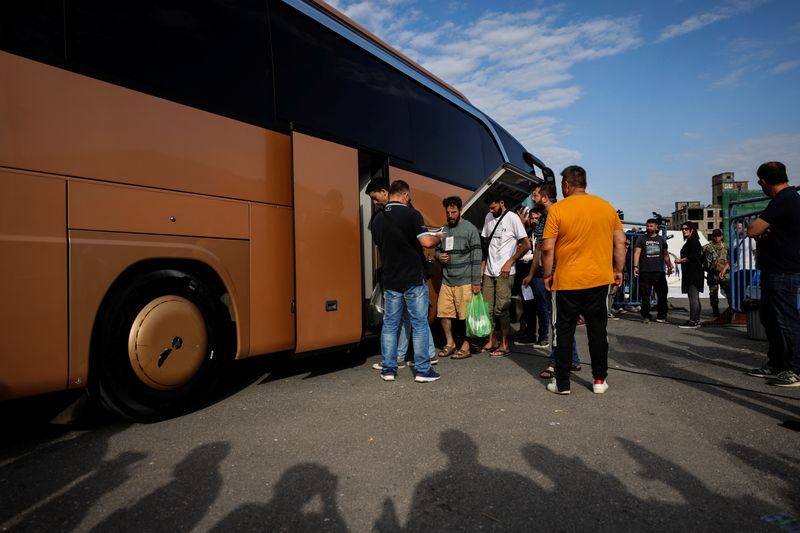U.N. human rights chief urges clamp-down on people smugglers after shipwreck
2023.06.16 06:59

© Reuters. Migrants, survivors of a deadly shipwreck after a boat capsized at open sea off Greece, board a bus as they are being transferred to Athens from the port of Kalamata, Greece, June 16, 2023. REUTERS/Stelios Misinas
GENEVA (Reuters) – The United Nations High Commissioner for Human Rights called on Friday for countries to clamp down on people smugglers and human traffickers after at least 78 migrants were killed in a shipwreck off the coast of Greece.
Witness accounts suggested between 400 and 750 people had packed a fishing boat that capsized and sank early on Wednesday morning about 50 miles (80 km) from the southern coastal town of Pylos.
“What happened on Wednesday underscores the need to investigate people smugglers and human traffickers and ensure they are brought to justice,” Jeremy Laurence, U.N. Human Rights Office spokesperson, told reporters in Geneva.
“The High Commissioner reiterated his call to states to open up more regular migration channels and enhance responsibility sharing, ensure arrangements for the safe and timely disembarkation of all people rescued at sea, and the establishment of independent monitoring and oversight of migration related policies and practices.”
Dimitris Chaliotis, a Hellenic Red Cross volunteer who was part of the rescue operations, said that most migrants were from Libya and Syria. In the immediate aftermath of the disaster 104 survivors and 78 people who drowned were brought to shore by Greek authorities, but nothing has been found since.
Nine people have been arrested over the shipwreck, a Greek shipping ministry official said.
Greece is one of the main routes into the European Union for refugees and migrants from the Middle East, Asia and Africa.
The United Nations has recorded more than 20,000 deaths and disappearances in the central Mediterranean since 2014, making it the most dangerous migrant crossing in the world.
Nearly 3,800 people died on migration routes within and from the Middle East and North Africa last year, the highest number recorded there since 2017, according to data published earlier this month by the International Organization for Migration (IOM).








